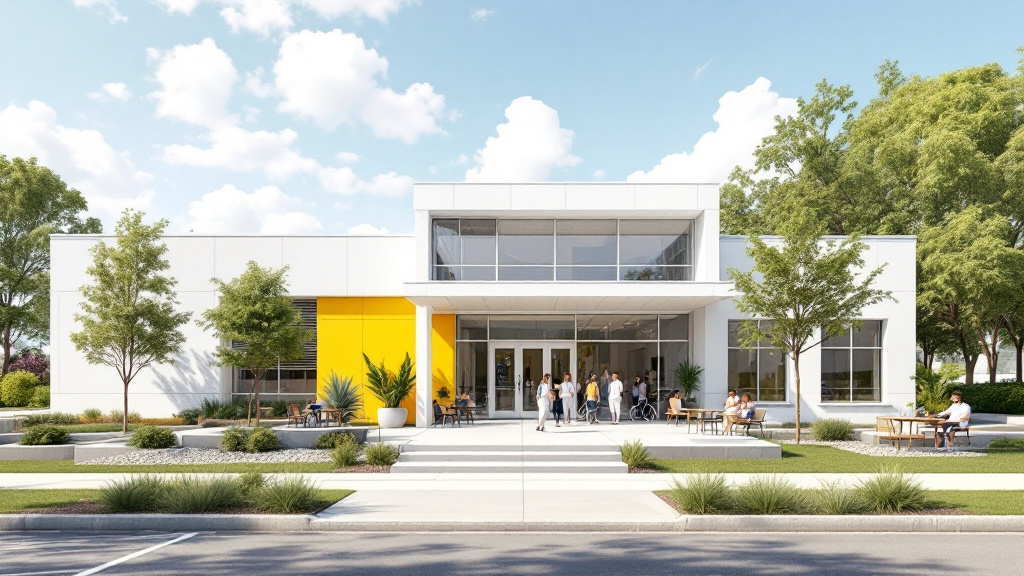The Truth About Autism Behavior Technician Salaries: What You Need to Know
Demystifying autism behavior technician salaries: Get the scoop on pay ranges, comparisons, and industry outlook.


Understanding Autism Behavior Technician Salaries
When considering the salaries of autism behavior technicians, it's important to understand the factors that can impact their earnings and the salary ranges within the field.

Factors Impacting Salaries
Several factors can influence the salaries of autism behavior technicians. These factors include:
- Location: Salaries can vary depending on the geographical location where the technician is employed. For instance, the cost of living and demand for these professionals may differ across different states or regions.
- Employer Size: The size of the employer can also play a role in determining salaries. Larger organizations or institutions may have different salary structures and compensation packages compared to smaller clinics or private practices.
- Experience: The level of experience an autism behavior technician has can affect their earning potential. Generally, individuals with more experience in the field may command higher salaries.
- Certifications: Some behavior technicians may choose to pursue additional certifications, such as becoming a Registered Behavior Technician (RBT). These certifications can often lead to higher salary opportunities.
Salary Ranges
The salary ranges for autism behavior technicians can vary based on the factors mentioned above. The following figures provide an overview of the salary ranges for no experience RBTs:
- Salaries for no experience RBTs range from $19,500 to $50,500 annually.
It's important to note that these figures are approximate and can vary depending on the specific circumstances of the technician, such as location and employer.
Understanding the factors influencing salaries and the salary ranges within the field of autism behavior technicians is crucial for professionals and individuals considering a career in this field. By considering these factors, technicians can negotiate fair compensation based on their qualifications and employers can ensure competitive salaries to attract and retain skilled professionals in the field.
Autism Behavior Technician Salaries in the US
When considering a career as an autism behavior technician, it's important to understand the salary landscape in the United States. Salaries for autism behavior technicians can vary significantly based on factors such as location, employer, and experience level. In this section, we will explore the average annual salary, hourly rates, and salary variances for autism behavior technicians in the US.
Average Annual Salary
As of October 30, 2021, the average annual salary for a no experience registered behavioral technician (RBT) in the United States is $34,022 [2]. However, it's important to note that this figure serves as a baseline and salaries can deviate based on various factors.
Hourly Rates
The average hourly salary for a behavior technician can provide further insight into the compensation for this role. For example, at Early Autism Services, the average hourly salary for a behavior technician is $18.67, with rates ranging from $14.18 to $22.41 per hour. These rates may vary based on factors such as experience and job performance.
Salary Variances
Autism behavior technician salaries in the United States can exhibit variances due to factors such as location, employer, and experience level. According to ASTRA ABA, the national average salary for autism behavior technicians is approximately $35,842 per year, with salaries typically falling between $32,423 and $40,024. On an hourly basis, the average wage for autism behavior technicians is around $17.25, ranging from $15.60 to $19.23 per hour [4].
It's important to keep in mind that these figures represent averages and may not reflect the full range of salaries in the field. As you explore opportunities as an autism behavior technician, it's advisable to research salary ranges specific to your location and employer to gain a more accurate understanding of the compensation you can expect.
Understanding the average annual salary, hourly rates, and salary variances for autism behavior technicians in the US can help you make informed decisions regarding your career path. Keep in mind that salaries can vary depending on factors such as location, employer, and experience level. Conduct thorough research and consider multiple data sources to gain a comprehensive understanding of the compensation landscape in your desired area of practice.
Autism Behavior Technician Salaries in Canada
When it comes to autism behavior technician salaries in Canada, several factors come into play, including experience, qualifications, and location. Let's explore the national average salary, hourly rates, and regional variances for behavior technicians in Canada.
National Average Salary
The national average salary for a behavior technician in Canada is approximately $49,612 per year. This figure is based on 22 anonymously submitted salaries, as reported on Glassdoor. It's important to note that this average can vary depending on factors such as years of experience, level of education, and specific job requirements.
Hourly Rates
In Canada, behavior technicians specializing in autism earn an average hourly rate of around $23.92. However, it's essential to consider that hourly rates can vary based on factors such as experience, qualifications, and location. Hourly rates for behavior technicians can range from $14.00 to $34.60 per hour, depending on these factors.
Regional Variances
There are regional variances in behavior technician salaries across different areas in Canada. For example, compensation packages offered by employers can vary. Based on data from Glassdoor, LifeWorks offers an average base salary range of $33,000 to $40,000 for behavior technicians in Canada. Hamilton Health Sciences offers a range of $19 to $23 per hour, while Labrador-Grenfell Health offers a wider range of $73,000 to $85,000 per year.
It's important to note that these figures are approximate and can be influenced by factors such as the level of experience, location, and the specific organization hiring behavior technicians.
Understanding the salary landscape is essential for individuals considering a career as an autism behavior technician in Canada. By considering the national average salary, hourly rates, and regional variances, aspiring behavior technicians can gain insight into the potential earning potential and make informed decisions regarding their career path.
Comparison: RBTs vs. Behavior Technicians
When it comes to salaries in the field of autism behavior therapy, there is a distinction between Registered Behavior Technicians (RBTs) and general Behavior Technicians. Let's take a closer look at the salary differences and the factors that influence them.
Salary Differences
Generally, RBTs tend to earn higher salaries compared to Behavior Technicians. The national average salary for RBTs in the United States ranges from approximately $37,000 to $45,000 per year, according to ASTRA ABA. On the other hand, the national average salary for autism behavior technicians falls around $35,842 per year, with salaries typically ranging between $32,423 and $40,024 [4].
It's important to note that these figures can vary depending on factors such as experience, education, geographic location, and work setting. ASTRA ABA also mentions that salaries for RBTs can range from $25,000 to $56,000 per year, while no experience RBTs can earn between $19,500 and $50,500 annually.
Factors Influencing Salaries
Several factors come into play when determining the salaries of both RBTs and Behavior Technicians. Here are some key factors that can influence their earnings:
- Experience: The number of years working in the field can impact salary levels. Generally, individuals with more experience may command higher salaries due to their accumulated knowledge and expertise.
- Education: Higher levels of education, such as advanced degrees or specialized certifications, can contribute to increased earning potential. Pursuing additional training and certifications can demonstrate a commitment to professional development, which may be reflected in higher salaries.
- Geographic Location: Salaries can vary significantly depending on the region and local cost of living. Areas with a higher cost of living often have higher salary ranges to accommodate for the increased expenses.
- Work Setting: The type of organization or facility where RBTs and Behavior Technicians are employed can impact salaries. For example, working in a private practice or a large healthcare facility may offer different compensation structures.
It's important for individuals in these roles to consider these factors when negotiating salaries and planning for career growth. By understanding the nuances and variables that contribute to salary differences, professionals can make informed decisions about their career paths in the field of autism behavior therapy.
Growth and Outlook
The field of autism behavior technicians is experiencing significant growth, with a positive outlook for job opportunities in the coming years. This section explores the demand projection and industry trends in this field.
Demand Projection
The demand for behavior technicians, including Registered Behavior Technicians (RBTs), is projected to grow by 11 percent from 2019 to 2029. This growth reflects the increasing recognition of the importance of behavioral intervention and therapy in supporting individuals with autism and related conditions.
As awareness of autism and the benefits of applied behavior analysis (ABA) therapy continues to expand, the need for qualified professionals to provide these services is on the rise. The demand for autism behavior technicians is expected to outpace the average growth rate for all occupations, creating a favorable job market in this field.
Industry Trends
The field of autism behavior technicians is evolving, driven by advancements in research, technology, and therapeutic approaches. Here are some notable industry trends:
- Increased Integration of Technology: Technology plays an essential role in the delivery of autism interventions. Behavior technicians are utilizing various tools, such as mobile applications and data collection software, to enhance their practice and streamline the therapy process.
- Focus on Individualized Treatment: A growing trend in autism therapy is the emphasis on individualized treatment plans tailored to the unique needs of each individual. Behavior technicians are implementing person-centered approaches that consider the specific strengths, challenges, and goals of the person with autism.
- Collaborative Care: Collaborative care models are becoming more prevalent in the field of autism therapy. Behavior technicians often work closely with other professionals, including Board-Certified Behavior Analysts (BCBAs), speech therapists, occupational therapists, and educators, to provide comprehensive and integrated support to individuals with autism.
- Telehealth Services: The COVID-19 pandemic has accelerated the adoption of telehealth services in the field of autism therapy. Behavior technicians are increasingly utilizing virtual platforms to deliver therapy, conduct assessments, and collaborate with clients and caregivers remotely.
- Ongoing Professional Development: As the field of autism behavior technicians continues to evolve, professionals are recognizing the importance of continuous learning and professional development. Behavior technicians are encouraged to pursue additional certifications, attend workshops and conferences, and stay up-to-date with the latest research and best practices in autism therapy.
These industry trends contribute to the growth and advancement of the field, creating opportunities for behavior technicians to make a meaningful impact in the lives of individuals with autism and their families.
Becoming a Registered Behavior Technician
To become a Registered Behavior Technician (RBT), individuals need to meet specific training requirements and complete a certification process. This section will outline the necessary steps to become an RBT.
Training Requirements
Becoming an RBT doesn't require a degree, but it does involve completing a 40-hour training course based on the RBT® Task List. This list outlines the skills and competencies needed to work as an effective behavior technician. The training is typically available online and can be completed for free or at a nominal cost, usually a few hundred dollars [5].
While the training can be self-paced, it's important to ensure that the course is approved by the Behavior Analyst Certification Board (BACB). The BACB is the organization responsible for administering the RBT certification.
Certification Process
Once the training is completed, individuals can proceed with the certification process. The first step is to submit an application to the BACB. The application fee for RBT certification is $50. After the application is approved, individuals can schedule and take the RBT exam, which has a separate fee of $45.
The exam assesses the knowledge and skills acquired during the training. It consists of multiple-choice questions and requires a passing score to obtain the RBT credential. Upon successful completion of the exam, individuals will receive their RBT certification.
It's important to note that while RBT certification is recognized as a respected professional credential, behavioral health technicians are not regulated or licensed in most states. However, some states, such as Washington, Nevada, Oregon, and Louisiana, register or certify behavioral technicians based on the RBT® certification requirements. Even in states that do not regulate behavioral technicians, RBT certification is often a requirement among many employers when vetting applicants for a registered behavior technician position.
Becoming an RBT can be a rewarding career choice that allows individuals to make a positive impact on others' lives. The skills gained as an RBT are valuable not only in the field of applied behavior analysis but also in various other disciplines, including healthcare, education, and caregiving.
References
Find More Articles

How to Address Impulsivity with ABA Therapy

The Connection Between ABA Therapy and Long-Term Skill Retention

How ABA Therapy Can Be Adapted for Different Learning Styles

The Connection Between Play and Learning in ABA Therapy

How to Make ABA Therapy Fun and Engaging for Your Child

ABA Therapy for Children with Severe Autism

How to Use ABA Therapy Techniques to Build Self-Care Skills

The Importance of Consistency in ABA Therapy Implementation

The Role of ABA Therapy in Teaching Self-Management Skills

How to Address Self-Stimulatory Behaviors in a Supportive Way

The Importance of Functional Communication Training in ABA Therapy

How Renewable Energy Supports Autism Communities

The Benefits of a Structured ABA Therapy Program

Creating Eco-Friendly Spaces for Autism

The Benefits of Parent-Implemented ABA Therapy Strategies

The Importance of Reinforcement Schedules in ABA Therapy

How to Support a Child with Autism in Group Learning Environments

The Connection Between ABA and Emotional Regulation

How ABA Therapy Helps Reduce Repetitive and Rigid Behaviors

Energy-Efficient Autism Community Resources

How to Use ABA Therapy to Reduce Excessive Repetitive Behaviors

The Role of Play in ABA Therapy

The Benefits of Combining ABA Therapy with Other Support Services

How ABA Therapy Helps Develop Self-Confidence in Children with Autism

The Role of Play-Based ABA Therapy in Early Childhood Development

The Role of Goal-Oriented Sessions in ABA Therapy

How ABA Therapy Works: A Step-by-Step Guide

The Role of Self-Management Strategies in ABA Therapy

How ABA Therapy Supports Emotional Expression in Children

The Role of Parent Training in ABA Programs

How ABA Therapy Supports Positive Transitions Between Activities

How to Reinforce ABA Learning in Community Settings

The Role of Functional Behavior Assessments in Preventing Problem Behaviors

How School-Based ABA Therapy Supports Classroom Success

How to Choose Between At-Home and Center-Based ABA Therapy

How ABA Therapy Helps Develop Conflict Resolution Skills

How to Identify the Best ABA Provider for Your Child

How to Use Token Economies in ABA Therapy

The Role of Peer Modeling in ABA Therapy Success

The Benefits of Naturalistic Teaching Approaches in ABA Therapy

What Is the ABCs of Behavior in ABA Therapy?

The Benefits of Group ABA Therapy for Social Skill Development

How to Encourage Positive Social Interactions with ABA Strategies

How to Introduce New Skills in ABA Therapy Without Overwhelming Your Child

The Benefits of Combining ABA Therapy with Other Interventions

Solar Power for Autism Support Networks

How to Address Hyperactivity with ABA Therapy

Common Misconceptions About ABA Therapy

Understanding the Principles of Positive Reinforcement

Understanding the Principles of Positive Reinforcement

Understanding the Principles of Positive Reinforcement

How ABA Therapy Supports Transitions Between Activities

Understanding the Principles of Positive Reinforcement

How to Identify and Celebrate Small Successes in ABA Therapy Progress

Understanding the Principles of Positive Reinforcement

How to Introduce Visual Schedules for Better Behavior Management

How ABA Therapy Can Reduce Self-Injurious Behaviors

How ABA Therapy Supports Academic Success

The Importance of Early Signs Recognition and ABA Intervention

How ABA Therapy Helps Improve Comprehension and Listening Skills

How to Use Visual Schedules to Support Your Child’s ABA Goals

How ABA Therapy Supports Self-Help Skills Like Dressing and Eating

How ABA Therapy Supports Behavioral Success in Community Settings

How ABA Therapy Helps Build Independence in Daily Activities

Building Social Skills Through ABA Therapy Techniques

The Role of School-Based Behavior Intervention Plans (BIPs)

The Benefits of Scripting and Role-Playing in ABA Therapy

How to Help Your Child Develop Coping Strategies with ABA Therapy

How to Address Hyperactivity and Attention Challenges with ABA Therapy

How to Help Your Child Develop Coping Strategies with ABA Therapy

How ABA Therapy Addresses Challenging Behaviors

The Importance of Social Skill Groups in ABA Therapy

How ABA Therapy Addresses Challenging Behaviors

The Role of Task Analysis in ABA Therapy for Teaching New Skills

How ABA Therapy Helps Improve Focus and Attention in the Classroom
%2520(1).jpeg)
Assessment Tools For People With Autism

Autism And Chronic Pain

How to Use Social Stories to Enhance ABA Therapy Outcomes

How ABA Therapy Helps Prepare Children for School Success

How School-Based ABA Therapy Can Improve Academic Performance

How to Address Resistance to ABA Therapy and Build Engagement

How to Use ABA Therapy to Develop Self-Help Skills in Daily Routines

How to Use Role-Playing in ABA Therapy for Skill Development

How to Handle Regression in Skills During ABA Therapy

How ABA Therapy Supports Social Communication Development

How to Find the Best ABA Therapy Provider for Your Child

How to Create a Reward System That Motivates Your Child in ABA Therapy

The Role of ABA Therapy in Preparing Children for Independent Living

How ABA Therapy Teaches Communication and Social Skills

How School-Based ABA Services Help Students with Autism Thrive

How ABA Therapy Helps Develop Patience and Waiting Skills

How to Support Your Child’s Social Interactions Using ABA Techniques

How ABA Therapy Addresses Anxiety and Fear Responses in Children

The Role of Play-Based ABA Therapy in Skill Development

How ABA Therapy Helps Build Confidence in Children with Autism

The Benefits of Center-Based ABA Therapy for School Readiness

The Role of ABA Therapy in Building Emotional Intelligence

How to Use Differential Reinforcement in ABA Therapy

Exploring Different ABA Techniques and Strategies
Contact us
North Carolina, Tennessee, Nevada, New Jersey, Utah, Virginia
New Hampshire, Maine
Massachusetts, Indiana, Arizona, Georgia
.avif)

